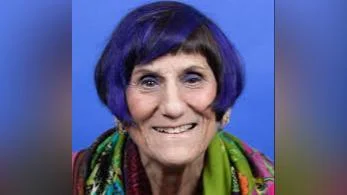Peter Salovey President | Yale University
Peter Salovey President | Yale University
Almost half of the world's population faces the risk of malaria infection, with children and pregnant women being the most vulnerable. Traditional detection methods require invasive blood samples and have significant limitations. New research published in Nature Communications introduces a noninvasive test that could change malaria testing globally.
The study, led by Yale School of Public Health epidemiologist Dr. Sunil Parikh and colleagues from the University of Arkansas for Medical Sciences and Cameroon, presents a new test using a device called a Cytophone. This device applies lasers and ultrasound to detect malaria-infected cells without drawing blood. The Cytophone uses photoacoustic technology to determine infection within minutes through a probe placed on a person's hand.
Dr. Jillian N. Armstrong, one of the study's lead authors, explains that red blood cells infected with malaria accumulate hemozoin crystals which can be detected by the Cytophone probe due to their magnetic and optical properties.
Tests conducted in Cameroon showed that the Cytophone had 90% sensitivity and 69% specificity in detecting malaria infections, comparable to current gold standards like microscopy and rapid diagnostic tests targeting polymerase chain reactions (PCR). Dr. Armstrong stated, "Our study showed that the Cytophone was safe and had comparable diagnostic performance to current point-of-care options when compared to highly sensitive quantitative PCR as the gold standard."
Bioengineer Vladimir P. Zharov initially developed this technology for detecting cancerous melanoma cells before adapting it for malaria detection. The Cytophone effectively identified Plasmodium falciparum, along with less common Plasmodium species during clinical testing.
Parikh highlighted his excitement about detecting different species driving increased infections in some countries since all human malaria species produce hemozoin nanocrystals during infection.
The collaboration with Cameroonian researchers was crucial in testing the device during COVID-19 restrictions. Professor Yap Boum II played a key role in continuing testing efforts locally.
Armstrong emphasized, "I believe that these kinds of transdisciplinary projects between engineers and epidemiologists are crucial to reduce the global burden of disease." The team aims to develop more advanced versions of the Cytophone for broader use.
Malaria remains a significant global health issue with an estimated quarter-billion cases annually. The World Health Organization aims to reduce cases by 90% globally by 2030, and innovations like the Cytophone could assist these efforts.
The research is part of ongoing transformative work at Yale School of Public Health (YSPH), where Parikh has been named co-principal investigator at a new International Center of Excellence in Malaria Research (ICEMR) in Burkina Faso.
Dr. Amy Bei from YSPH is also involved as a co-investigator at ICEMR, focusing on Plasmodium research including vaccine candidates studies across sub-Saharan Africa regions.
Parikh convenes MalarYale—a network aiming for collaborative solutions against malaria—alongside other specialists like Drs. Choukri Ben Mamoun, Erol Fikrig, Joseph Vinetz, John Carlson among others engaged across various countries worldwide tackling diverse aspects related specifically towards multifaceted approaches needed combating such persistent challenges posed regionally/globally alike accordingly thus fostering continued advancement potential beyond traditional limitations encountered previously seen historically otherwise perhaps until now anew instead today rather still yet again forthwith therein hereupon overall finally ultimately thereby thereafter onwards thenceforth forevermore henceforward perpetually always eternally ad infinitum amen!



 Alerts Sign-up
Alerts Sign-up